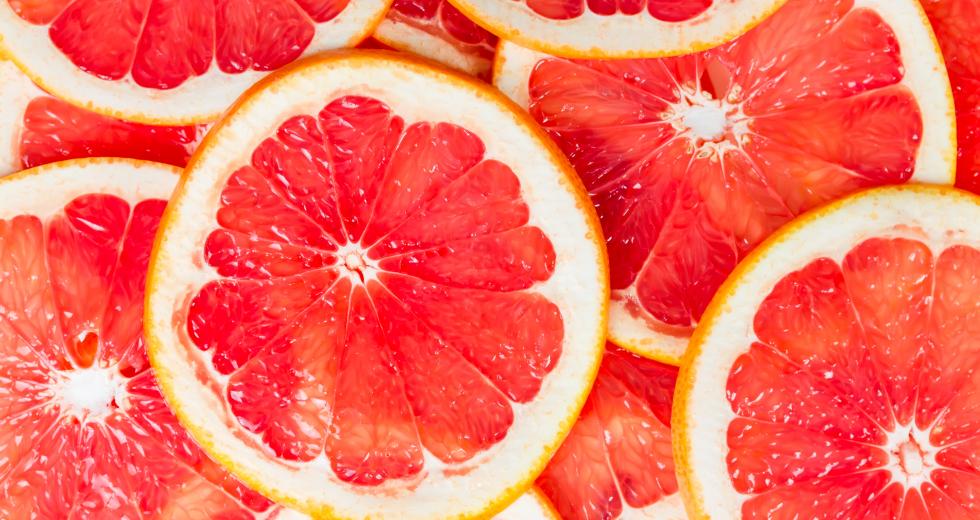Let’s face it. The grapefruit is cumbersome and often sour. Also, it can kill you.
So of course Stewart and Lynda Resnick decided it will be their next celebrity plant product. The Californians and their company, the Wonderful Co., have made a lot of money turning unassuming agricultural commodities into well-known brands, most famously the pomegranate and the mandarin. They think their magic can work on the grapefruit, a hybrid born in Barbados in the 17th Century and often derided since.
“We really do have a chance to change the future of red grapefruit,” said David Krause, president of the company’s citrus business from an office in Mission, Texas, down the road from groves blooming with fragrant golden orbs. “We love it, we think consumers will too if they’ll try it — just try the stuff.”
Pleading might work. Wonderful has also bought up miles of Texas grapefruit groves, packing houses and a processing plant, and introduced new planting and pruning methods for a variety called Rio Red. Originally from the Lone Star State, it’s known for a high sugar content and deep red flesh that thrives under the hot sun and cool nights of the Rio Grande Valley.
But while red is much less bitter than white or pink, the Resnicks may still have their work cut out, because grapefruit is like religion and politics. “It is often polarizing among consumers,” said Rachel Royster, an analyst at the food research firm Technomic Inc. “They either love it or hate it.”
Kidney Failure
Increasingly the latter, it seems. Back in 1976, Americans consumed 9 pounds of fresh grapefruit per capita, according to the U.S. Department of Agriculture. Last year? Just 2 pounds. The preference these days is for food that’s sweet and convenient, traits for which the hard-to-peel grapefruit is not generally known. What’s more, since 1999 the U.S. Food and Drug Administration has warned about potential dangers, including kidney failure, of consuming grapefruit or its juice while taking certain cholesterol-lowering drugs.
The Resnicks are throwing their marketing muscle at Citrus paradisi, aiming to replicate other successes from Wonderful, the holding company for brands including Teleflora, the flower- delivery service the couple bought in 1979, and FIJI Water. Before Wonderful launched POM Wonderful fruit and juices in 2002, the pomegranate was considered exotic, while today the super-seedy crimson fruit vies for space alongside produce staples. (A U.S. court of appeals recently upheld a ruling by the Federal Trade Commission that found POM Wonderful used “false and deceptive” advertising claims regarding the disease- prevention qualities of pomegranate juice.)
Sweet Scarletts
Wonderful has rechristened its Rio Red as Wonderful Sweet Scarletts, after a Resnick granddaughter, and created a logo of a smiling girl wearing a long braid and a bright red cowboy hat. Last month, Wonderful hosted an event in New York to show off Sweet Scarletts recipes created by Texas-born Haylie Duff of “The Real Girl’s Kitchen” on the Cooking Channel. Duff was on hand at the Andaz hotel on Fifth Avenue, where guests sampled such dishes as grapefruit brulee with mascarpone. Among the cocktails served was the Scarletts Kiss, a mix of gin, tarragon and grapefruit juice.
Could this be grapefruit’s moment? Quite possibly. “A lot of healthier options are bland and boring,” Royster said. Grapefruit “has a great sharp taste that is far from boring.”
Wonderful made its first grapefruit acquisition in 2012, when it bought Healds Valley Farms, a major grower in Texas. Now Wonderful controls nearly three-quarters of the grapefruit production in the state, which is the second-largest U.S. grapefruit producer after Florida.
Wonderful’s incursion has sparked competition. Last month, rival Lone Star Citrus Growers started selling its not-so-sour version, Winter Sweetz. “There is a very, very positive energy associated with the grapefruit,” said Trent Bishop, Lone Star’s vice president of sales.
The grapefruit might not be as easy to revive as the mandarin, the Resnicks’ star citrus turnaround product. Branded as Halos, the mandarins have thrived under a $100 million marketing budget. In a decade the petite citrus went from being a specialty item to a standard. That sell was relatively easy because mandarins are honey sweet, their peel slides off and they’re small enough to pop in a lunch box.
Wonderful knows about lab research that could alter some grapefruit flaws, making peeling easier for example, but the company doesn’t want to go there. “We just don’t have any plans to change the natural characteristics of the product,” Krause said. “We think a little bit of effort will move the needle quite substantially.”



